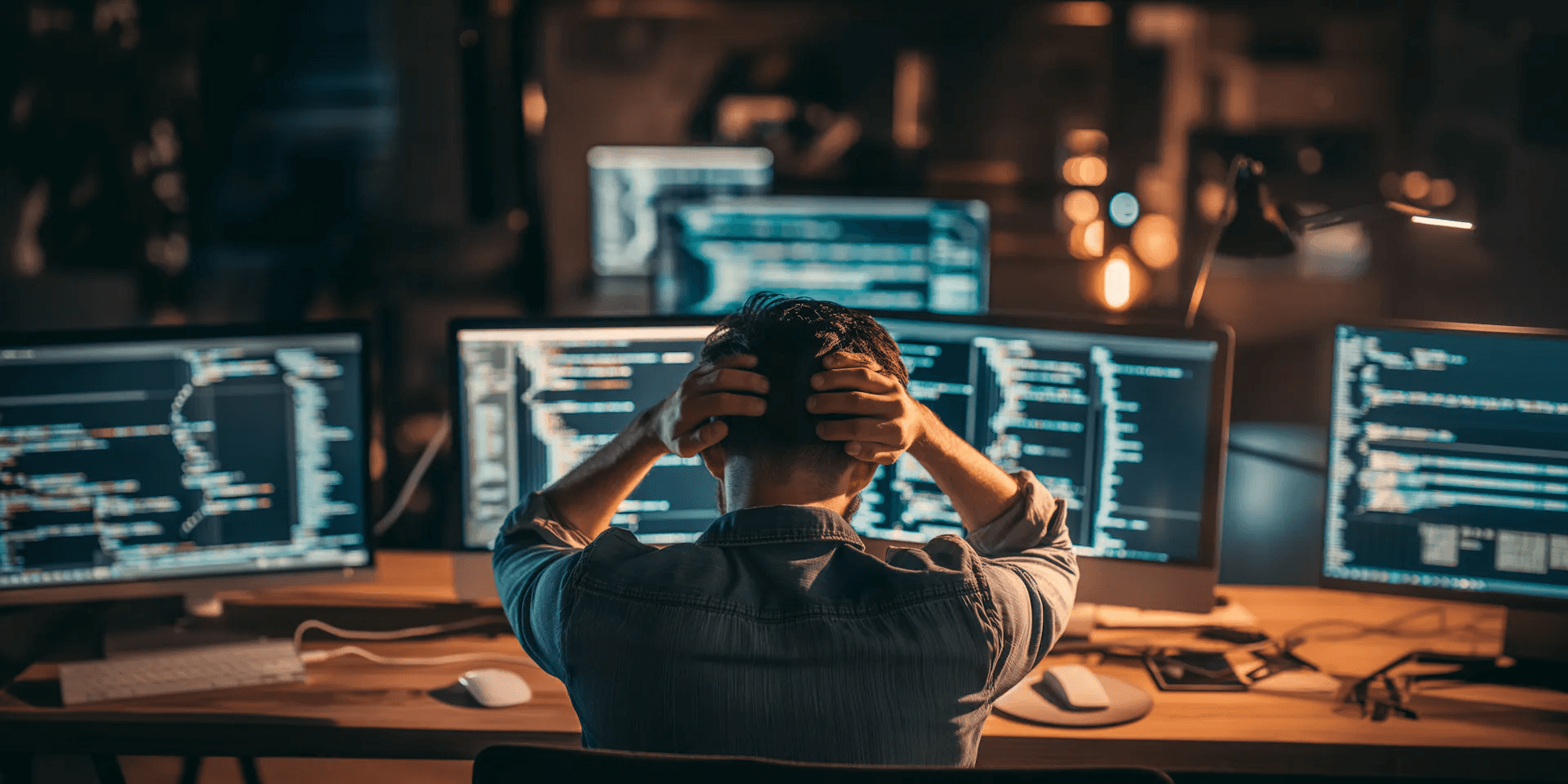Why Failing Might Be Your Best Move as a Developer
Failure—it feels terrible. As software engineers, we're no strangers to the frustration that comes with it. The pressure to write perfect code, the challenges that test our patience—it's enough to make anyone want to quit. But the thing is that failure isn’t the end of the road; actually, it might just be the beginning of something great.
In reality, being a "rockstar" or "ninja" developer isn’t a real thing. We’re all human beings. Sometimes we mess up. Sometimes we question if we’re good enough (screw you imposter syndrome).
Let’s just be real: It sucks to fail, but it’s inevitable. Being honest can help us learn more and be more productive. As developers, we’re constantly failing, whether it’s breaking an app, creating a swarm of bugs (oops), or maybe creating a feature no one cares about. So if we’re going to fail, we might as well do it right.
The truth is, you’ve already failed plenty of times in your life. From falling over when learning to walk to bombing at Guitar Hero the first time you played, and so on, failure is a common experience. Some failures are more accepted than others, but they’re all still failures. What changes is how we perceive them.
How do you define failure?
Failure is not being able to achieve a desired outcome or goal. It happens when things don't go as you hoped or when we fall short of our expectations. And guess what? It's okay. Failure is part of the journey.
Why does failure hurt so much?
Failing can feel awful because it makes us doubt ourselves. When we fail, we feel sad, upset, or embarrassed, especially if we invested a lot of time and effort into something.
It's that sinking feeling in the pit of your stomach when you realize you've messed up. Plus, societal pressures don’t help and you might worry about what others think or fear being judged.
Why is failure so important?
Failure is important because it gives you so many opportunities to learn and grow. It pushes us out of our comfort zones and encourages us to experiment, take risks, and try new things. Failure pushes us to our limit, helps us adapt to change, and become stronger.
Without failure, we wouldn’t have the opportunity to discover our strengths. The first time you wrote code, it was probably trash. If you want to write clean and beautiful code, you have to get through the crap code first. Like many things, you’re not going to master it the first try. You’re going to make a lot of mistakes before succeeding.
Normalizing failure
In the book “Search Inside Yourself”, Chade-Meng Tan, a former Google engineer, offers a refreshing perspective on failure. He proposes an exercise about visualizing failure, not to dwell on it, but to become familiar with it and change our relationship with it. It sounds cheesy, but it's true – embracing failure actually can lead to personal and professional growth.
So, how do you navigate failure? Here are some key tips:
Embrace it: Understand that failure is not the enemy, it’s part of the learning process. Instead of looking at it like a setback, take it as a chance to improve.
Be mindful: Mindfulness is a powerful tool in responding to failure. It helps us stay present, recognize our feelings, and stay calm. When faced with bugs or errors in our code, staying calm and focused is essential. Mindfulness lets us face setbacks with more clarity.
Learn from mistakes: Try to find lessons in your failures. For devs, analyzing the root cause of bugs or system failures and creating measures to prevent these issues from happening again in the future leads to a mindset of continuous improvement that lets you turn failures into opportunities for innovation and optimization.
Build resilience: Being resilient helps you deal with the challenges and uncertainties in development. Things like meditation, gratitude, and self-reflection help you stay more positive and be able to preserve.
➕ If you don't feel surprised by failure, you’ll be able to analyze and learn from it. Instead of being overwhelmed or discouraged, you can approach setbacks with a sense of curiosity and resilience.
Self-compassion
When it comes to failure, you have to know how to respond to it in the right way.
Self-compassion is key to this process. Hera are some things to remember:
→ Treat yourself with kindness and understanding when things don't go as planned.
→ Failure doesn’t reflect your worth or skills, it’s just a part of the puzzle on the way to success.
→ Try to hack your brain. Fight off those negative thoughts and overthinking. You don't always fail but when you do, remember that it’s not the end of the world.
So, practice self-compassion, try seeing failure as something to learn from, and change the way you deal with challenges.
The human side of coding: The value of failing
Normalize failure. Let's embrace it as a major part of the journey towards mastering a skill. And let's remember that as developers, we're not superheroes or rockstars or ninjas – we're human beings who sometimes screw things up. And that's perfectly okay.
In the end, it's not about avoiding failure; it's about failing right – learning, growing, and improving along the way. So, the next time you fail, show yourself some compassion, dust yourself off, and keep coding. It’s not easy to keep going, but ironically, doing things wrong teaches you so much more than getting it right every time.
